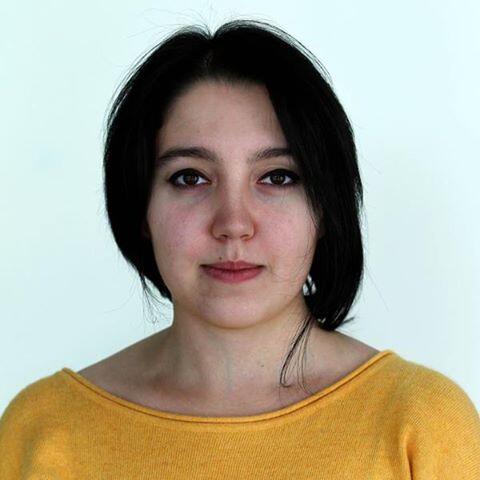by Lamiya Adilgizi
 For her final project in Emily Channell-Justice's course, "Ukraine in the World," Lamiya Adilgizi produced a podcast interviewing three experts from Armenia, Azerbaijan, and Ukraine. The podcast was recorded on August 1, 2022 in Berlin.
For her final project in Emily Channell-Justice's course, "Ukraine in the World," Lamiya Adilgizi produced a podcast interviewing three experts from Armenia, Azerbaijan, and Ukraine. The podcast was recorded on August 1, 2022 in Berlin.
Throughout the 65 minute talk, we took the chance to compare the social media activism during the Russian-Ukrainian war and the recent Nagorno-Karabakh war in 2020 and came to a conclusion that in both conflicts social media was extensively used as an online battleground for the creation of the sides’ national narrative. Amidst all those bubbles of fake news and images and lack of media literacy, hurt mentality and nationalistic sentiments added intensively to the detachment between the fighting sides rather than helping them come together. Therefore, the speakers are pessimistic about the future of a real peace in the region. Ukraine is not at peace and Armenians and Azerbaijanis are far from peace; rather, “a functional co-existence” might be tried in Nagorno-Karabakh, the experts concluded.
Participants
Margarita Tadevosyan, Ph.D. - a Research Assistant Professor and post-Doctoral research fellow at Jimmy and Rosalynn Carter School for Peace and Conflict Resolution. She is a scholar-practitioner of conflict resolution with over a decade of experience of convening and facilitating Track II dialogue projects in the South Caucasus. Her primary area of research interest is locally-led peacemaking and peacebuilding work, with a particular emphasis on relationships developed between local actors and international organizations. Dr. Tadevosyan has worked in the post-Soviet space, in particular in the South Caucasus, engaging with Armenian-Azerbaijani, Armenian-Turkish, and Georgian-South Ossetian conflict contexts. She received her PhD from George Mason University’s Carter School for Peace and Conflict Resolution in 2019. She also holds Masters Degrees in Peace Operations Policy (2010) and Conflict Resolution (2008), as well as Certificate in Peace Research from University of Oslo (2010).
Arzu Geybullayeva - Azerbaijani columnist and writer, with a special focus on digital authoritarianism and its implications on human rights and press freedom. Arzu has written for Al Jazeera, Eurasianet, CODA, Open Democracy, and Radio Free Europe, with a byline on CNN International. She is also a regional editor for South Caucasus and Turkey at Global Voices. In 2019, Arzu launched Azerbaijan Internet Watch, a platform that documents, and monitors information controls in Azerbaijan. Since 2015, she has been involved in various projects focusing on the safety of women journalists online. Arzu is based in Istanbul from where she continues her journalism work as well as her engagement in projects that continue to focus on the safety of women journalists online, platform accountability, and transparency.
Olena Dub - a Ukrainian journalist and social media specialist, who had to flee Ukraine due to the ongoing war. Having worked with local as well as various international media organizations such as Reuters Foundation and Internews etc. Olena has been responsible for years for the social media projects at Radio Free Europe/Radio Liberty, particularly leading the social media department at the radio’s media-project "Crimea.Realities". For the time being Olena is based in Poland and works as a social media editor at Human Rights Center ZMINA.